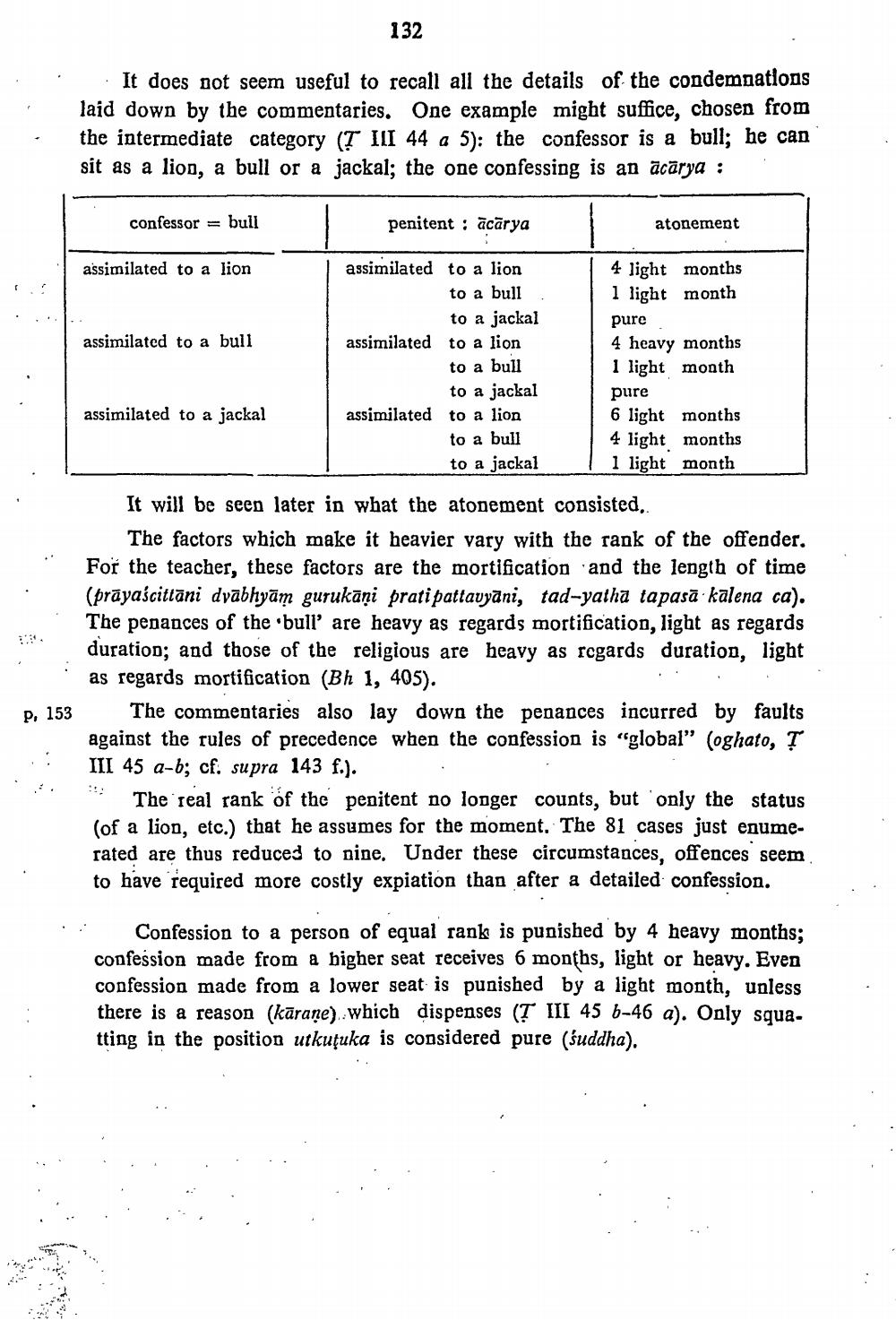________________
132
It does not seem useful to recall all the details of the condemnations laid down by the commentaries. One example might suffice, chosen from the intermediate category (T III 44 a 5): the confessor is a bull; he can sit as a lion, a bull or a jackal; the one confessing is an acārya :
confessor = bull
penitent: ācārya
atonement
assimilated to a lion
assimilated to a bull
assimilated to a lion
to a bull
to a jackal assimilated to a lion
to a bull
to a jackal assimilated to a lion
to a bull to a jackal
4 light months 1 light month pure 4 heavy months 1 light month pure 6 light months 4 light months 1 light month
assimilated to a jackal
It will be seen later in what the atonement consisted.
The factors which make it heavier vary with the rank of the offender. For the teacher, these factors are the mortification and the length of time (prāyaścittāni dyabhyām gurukāņi prati pattayyāni, tad-yatha tapasā kalena ca). The penances of the bull' are heavy as regards mortification, light as regards duration; and those of the religious are heavy as rogards duration, light as regards mortification (Bh 1, 405).
The commentaries also lay down the penances incurred by faults against the rules of precedence when the confession is "global" (oghato, ? III 45 a-b; cf. supra 143 f.). * The real rank of the penitent no longer counts, but only the status (of a lion, etc.) that he assumes for the moment. The 81 cases just enumerated are thus reduced to nine. Under these circumstances, offences seem to have required more costly expiation than after a detailed confession.
P. 153
.:
Confession to a person of equal rank is punished by 4 heavy months; confession made from a higher seat receives 6 months, light or heavy. Even confession made from a lower seat is punished by a light month, unless there is a reason (kārane) which dispenses (T III 45 6-46 a). Only squa. tting in the position utkuțuka is considered pure (suddha).




